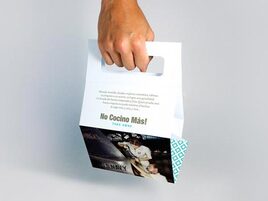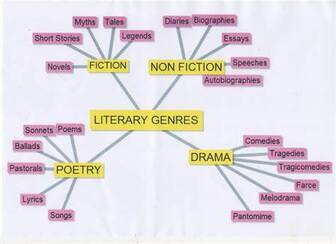 Did you know, your book’s meta data on KDP could inadvertently be sabotaging your book? We all know that meta data is key to your book showing up in Amazon searches. I’m not contradicting that in any way. What is also key, however, is not including anything in that metadata that might confuse Amazon’s algorithms. As we all know (despite the growth of AI) computers are stupid. They do what they are told to do. So, if they are told to search for keywords in your meta data in order to place your book in front of the right readers, that is what they will do. The problem arises when we, the authors, use words that aren’t meant to be keywords. They are meant to be something else.  Let me illustrate. Let’s say you are a writer of romance novels. You have spent hours, days or even weeks crafting the perfect blurb for your book. Great! Your opening line of the blurb is “Melissa woke up feeling like a zombie.” Now, you and I know that this is a simile. Melissa isn’t really a zombie, she just went to bed very drunk and is now feeling the effects of her excess. I think that the majority of us can relate to that. The trouble is that Amazon’s algorithms don’t know a simile from a hole in the ground. For them the use of the word “zombie” suggests that this may be a horror story, subcategory “zombie apocalypse”. So, if Amazon now shows the book to lots of horror story readers who then don’t buy it, the algorithm now doesn’t know what to do with the book – or who to show it to. The use of the word “zombie” just once is unlikely to have that affect. But if the author was to say also “her hangover was of apocalyptic proportions” then the confusion would be compounded by that word “apocalyptic” which, coupled with “zombie”, now tells Amazon’s algorithms that this is a book about the zombie apocalypse.. That romance book will be forever shown to readers of zombie apocalypse books and not to the readers of romance who might actually buy it. And it could be costing the author money. If they are running ads for the book, every time a reader of zombie apocalypse stories clicks on the ad, the author will be charged but the reader won’t buy because they will soon discover that the book is a romance, not a novel about the zombie apocalypse.  The example I have used is extreme and the categorisation of the book as romance is likely to override the use of the words. But it serves to illustrate my point. Because when the book is in the right category (let’s say fantasy) but uses keywords that can be used in a number of different subcategories, there could be a real problem. If the words you use in your blurb produce results for searches in the wrong subcategories, readers won’t click on the book and then the algorithm will assume there is something wrong with the categorisation and will stop showing it completely. Your keywords will be seen as irrelevant, making your book effectively invisible. I use fantasy as an example here because it has so many subcategories, but the same can apply in a number of genres: sci-fi, romance, historical fiction et al.  So, our takeaways for this section of the blog are simple:
But there is a second way that some authors sabotage their own books with their meta data.  One of the things we often read on social media is questions about how to choose a category for a book that is, according to its author, uncategorisable. The authors seem to think that just because they have included tropes from different genres or sub genres, they have created some sort of new genre. This is both wrong and/or arrogant. It is also very dangerous for the author. Every book has a central story and that is the one that dictates its genre (or category to use Amazon’s terminology). If you try to outthink the categorisation system for books on Amazon all that will happen is that your books won’t be shown to the right readers and therefore won’t sell. OK, there are some readers that won’t read a book in genre X if it contains trope Y, but they are the minority. Most readers are sufficiently liberal to accept a few intrusions from other genres providing the main tropes of the book remain faithful to the genre they love.  So, listing a grimdark novel under romantacy just because it contains a love interest is not a good idea, because romantacy readers won’t read it. If romantacy readers won’t read it, then Amazon’s algorithms will decide it is irrelevant and won’t show it to readers in any fantasy category.. For some reason there are some authors who think that they have created something that doesn’t fit into a category. Just because they have included a noblebright hero in a grimdark novel, they seem to think that their book is no longer grimdark. Likewise, if they then give their noblebright hero a romantic interest, they have strayed even further away from the grimdark category. This is NOT the case. If the main theme of the book is grimdark, then it doesn’t matter what else you throw into the mix. It is still grimdark and in that subcategory of fantasy it should be listed. The same applies to all the other myriad categories on Amazon or other book retailing platforms. Every author who claims that their book can’t be classified in that way is either arrogant, suffering from an overdose of vanity or they just don’t know how the categorisation system works.. There is no such things a new category or subcategory. If there was, Amazon and the other retailers would be all over it, because they employ professional market researchers to stay on top of those sorts of things..  Ask yourself a few simple questions: - What genre of book did I set out to write? - Does the main plotline include tropes appropriate to that genre? - Do the additional tropes that I have included amount to a major change in genre? This will help you to decide if your book is whatever you set out to write. You have not created a new genre just because you included a romance, or a quest, or … well, you get the idea. So, for the second part of this blog, our takeaways are:
With a bit of luck, you won’t then sabotage your own book. If you have enjoyed this blog, or found it informative, then make sure you don’t miss future editions. Just click on the button below to sign up for our newsletter. We’ll even send you a free ebook for doing so.
0 Comments
Leave a Reply. |
AuthorThis blog is compiled and curated by the Selfishgenie publishing team. Archives
June 2025
|
 RSS Feed
RSS Feed